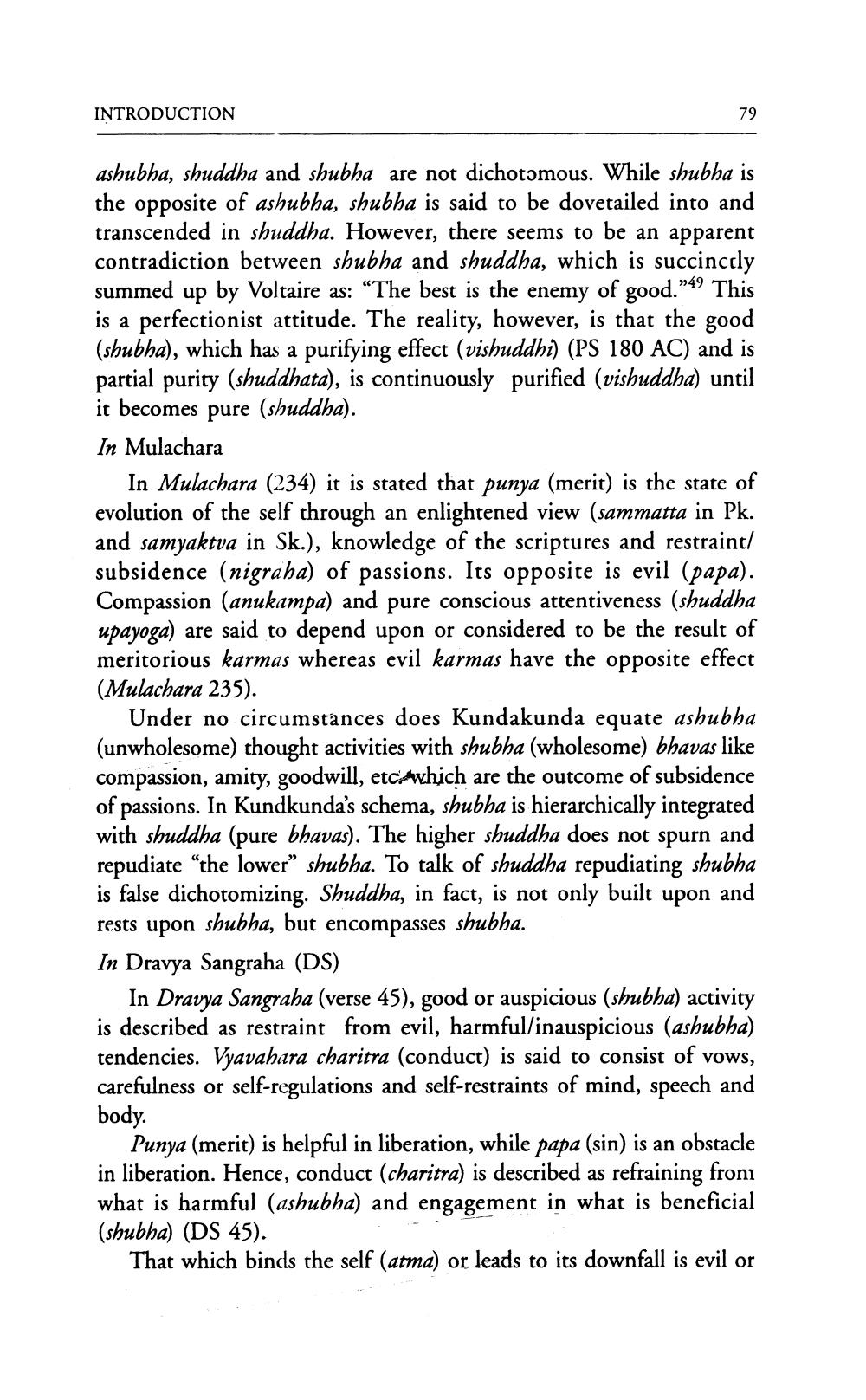________________
INTRODUCTION
79
ashubha, shuddha and shubha are not dichotomous. While shubha is the opposite of ashubha, shubha is said to be dovetailed into and transcended in shuddha. However, there seems to be an apparent contradiction between shubha and shuddha, which is succinctly summed up by Voltaire as: "The best is the enemy of good." »49 This is a perfectionist attitude. The reality, however, is that the good (shubha), which has a purifying effect (vishuddhi) (PS 180 AC) and is partial purity (shuddhata), is continuously purified (vishuddha) until it becomes pure (shuddha).
In Mulachara
In Mulachara (234) it is stated that punya (merit) is the state of evolution of the self through an enlightened view (sammatta in Pk. and samyaktva in Sk.), knowledge of the scriptures and restraint/ subsidence (nigraha) of passions. Its opposite is evil (papa). Compassion (anukampa) and pure conscious attentiveness (shuddha upayoga) are said to depend upon or considered to be the result of meritorious karmas whereas evil karmas have the opposite effect (Mulachara 235).
Under no circumstances does Kundakunda equate ashubha (unwholesome) thought activities with shubha (wholesome) bhavas like compassion, amity, goodwill, etc which are the outcome of subsidence of passions. In Kundkunda's schema, shubha is hierarchically integrated with shuddha (pure bhavas). The higher shuddha does not spurn and repudiate "the lower" shubha. To talk of shuddha repudiating shubha is false dichotomizing. Shuddha, in fact, is not only built upon and rests upon shubha, but encompasses shubha.
In Dravya Sangraha (DS)
In Dravya Sangraha (verse 45), good or auspicious (shubha) activity is described as restraint from evil, harmful/inauspicious (ashubha) tendencies. Vyavahara charitra (conduct) is said to consist of vows, carefulness or self-regulations and self-restraints of mind, speech and body.
Punya (merit) is helpful in liberation, while papa (sin) is an obstacle in liberation. Hence, conduct (charitra) is described as refraining from what is harmful (ashubha) and engagement in what is beneficial (shubha) (DS 45).
That which binds the self (atma) or leads to its downfall is evil or




